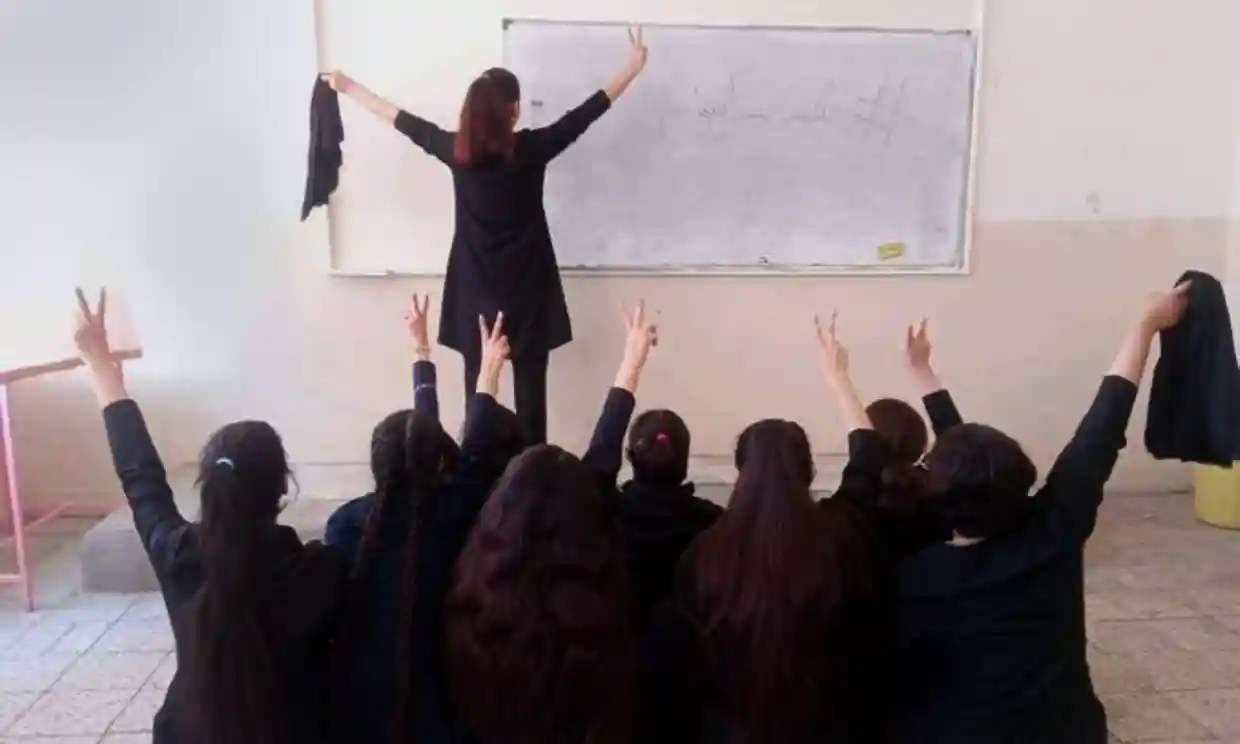As the world celebrates International Women’s Day 2023, the issue of women’s empowerment and feminism remains a sensitive subject in the Arab world, particularly in Iran. Since the overthrow of the shah in 1979, the image of women in the country has typically been defined by the hijab. However, the past six months have seen a complete turnaround of this past notion, as young women in Tehran have pushed the limits on what they can wear publicly, risking arrest and punishment.
Photos and videos of women with their hair out in public have gone viral on social media, but this newfound sense of freedom has not gone unnoticed by the authorities. The recent Mahsa Amini protests and the revelation that more than 1,000 Iranian girls in schools across the country have been poisoned are stark reminders of the continued oppression of women in Iran. Despite the implementation, criminalization, and promotion of compulsory hijab as the primary gender policy in Islamic states, women have shown remarkable courage and determination in their pursuit of justice, gender equality, and freedom of choice. The ongoing pursuit of these ideals is embodied in the slogan “women, life, freedom.”
The recent Mahsa Amini protests in Iran have shed light on the brutal oppression faced by women in the country. Mahsa Amini, a 26-year-old Iranian woman, was brutally beaten and murdered while in police custody after being arrested for not wearing a hijab in public. Her death sparked widespread protests across Iran, with many women taking to the streets to demand justice for Amini and an end to the oppressive policies that have long plagued their lives. However, the Iranian government has responded to these protests with violence and repression, using excessive force to quell dissent and punish those who speak out against the regime.
Moreover, recent revelations that more than 1,000 schoolgirls in Iran have been poisoned further demonstrate the dire situation faced by women in the country. The use of poison as a weapon against women is a shocking and deeply concerning development, and it is a clear indication that the Iranian government is willing to go to any lengths to maintain its control over the population. This is a violation of basic human rights, and it is a reminder that we must continue to fight for the rights of women and other marginalized groups in Iran and around the world.
The poisoning of schoolgirls in Iran is a shocking and disturbing development, and one that demands a response from the international community. This type of violence against children, particularly girls, is unacceptable and requires a multilateral response. It is essential that Iran’s leadership take swift action to identify and punish those responsible for these attacks, as well as to take steps to prevent such incidents from happening in the future. Additionally, other countries must come together not just to condemn these acts of violence but also to apply pressure to the Iranian regime to enact real change.
While international condemnation is an important step in bringing attention to human rights abuses, it is not sufficient in and of itself to bring about change in the behaviour of the Iranian regime. As history has shown, the regime has a pattern of making baseless statements in response to international criticism and continues to engage in human rights violations. Therefore, in addition to international condemnation, there needs to be concerted efforts to hold the Iranian regime accountable whether it be through sanctions targeting the regime or other measures.
On this International Women’s Day, it is important to recognize the courage and resilience of women in Iran who continue to fight for their rights in the face of incredible adversity. They have shown us that even in the darkest of times, hope and determination can prevail. We must stand in solidarity with these women and support them in their ongoing struggle for justice, gender equality, and freedom of choice.
Image Credit: Twitter



















